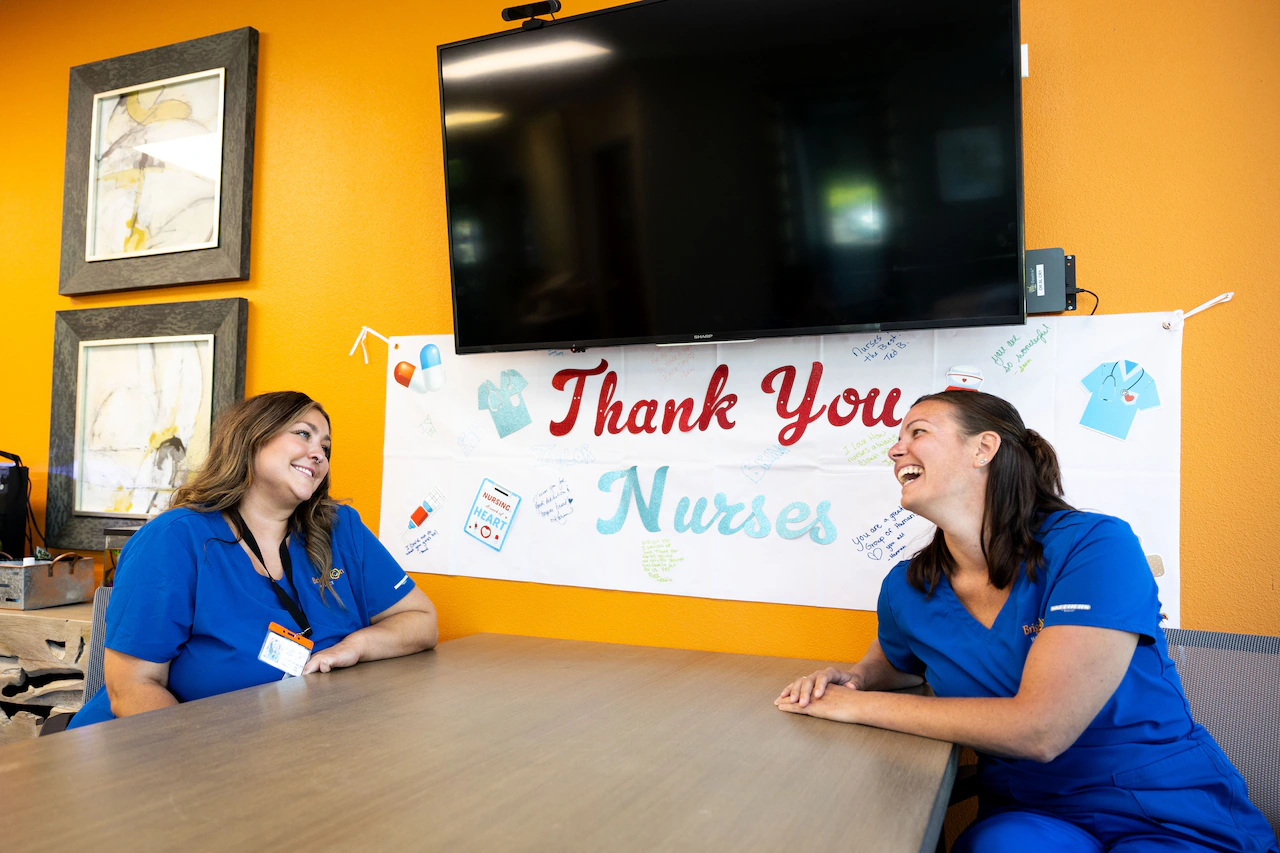
For hospice workers caring for terminally ill patients, the pandemic brought staggering caseloads, emotional burnout and a wave of resignations. Personal protective gear made it harder for workers to communicate with patients and their families. Hours were brutal and staffing shortages got worse, making end-of-life-care even more arduous than before.
“People get into it with really wonderful intentions,” said Hannah Palodichuk, assistant director of clinical services at Brighton Hospice, “and sometimes have a hard time navigating what it truly means to be around people that are passing and handling families and all the chaos that comes with that.”
But Brighton Hospice employees say the company has made a concerted effort to ease the inevitable stress of palliative care and to appreciate their efforts. As a result, Brighton has received a special award for creating a meaningful work environment in this year’s Top Workplaces survey of employers in Oregon and Southwest Washington.
Over the past year, Energage — the Oregonian/OregonLive’s research partner for the regional Top Workplaces project — has surveyed more than two million employees at more than 8,000 organizations across the nation. For workers, “meaningfulness is the difference between laying bricks and building a cathedral,” the company says. “Since most people spend the majority of their waking hours at work, they need to know the time they spend has a positive impact on the world — no matter how small.”
Surveys demonstrate ways that employers cultivate meaningfulness derived from many kinds of roles, from sales to training to public service. The awards are often won by workplaces in which employees can meet clients and see the tangible impact of their efforts, including schools, nonprofits, local governments and health care providers. In recent years, the meaningfulness award for Oregon and Southwest Washington has gone to large employers such as Adventist Hospital, midsize employers such as the Mental Health & Addiction Association of Oregon and Self Enhancement Inc., and small employers such as Portland Rescue Mission.
Brighton was founded in Utah 14 years ago. It entered the Oregon market in 2017 with Brighton Hospice Portland, followed by Brighton Hospice Eugene in 2020. Brighton merged with another Utah-based hospice provider called Suncrest in 2024; the combined company operates in 24 states with about 4,500 patients, making it one of the largest privately held hospice providers in the country.
The company delivers hospice services to patients where they live. In surveys, employees said upper management is engaged with staffers and their work, providing coaching, guidance and ample support as providers travel to patient homes and care facilities. Supervisors are expected to work side-by-side with their teams, filling in to ease heavy caseloads.
“I love having leaders and not managers,” one employee wrote. “And yes, there is a difference.”
Hospice care is, by its nature, a lonely high-wire act that requires unique medical expertise, compassion, communication skills and a daily reckoning with mortality and grief. COVID-19 overwhelmed the industry, forcing hospice companies to change the way they recruit, train and retain frontline workers.
Equally important, the industry has taken a renewed focus on the mental health and well-being of its workers. Brighton gives its nurses, social workers, chaplains and supervisors a full slate of formal and informal support services.
Palodichuk often heads out to see patients to lighten the workload for her team. The company holds bereavement sessions so providers can share and discuss the difficulties of their work. Employees feeling overwhelmed or taking a sick day may get a plate of their favorite cookies or hot soup delivered to their front door. Seasonal all-staff meetings and social media posts honor employee achievements.
And, despite the solitary nature of the work, help from colleagues is only a phone call away.
Early this year, Taylor Rumelhart left her job at a county jail to join Brighton as a registered nurse and case manager. At the jail, her patients were angry, isolated and violent. Staff turnover made it difficult to create good work relationships and a cohesive team environment.
That changed in February on her first day of work at Brighton. The gratitude she gets from patients and their families has reminded her of the importance of her work and the reason she got into nursing in the first place.
She’s especially appreciative of the bond she has with her colleagues, from the vice president to the music therapist. She knows when she’s at a patient’s residence that she can dial up a co-worker if she has questions about the care, medication or information for the families.
“The support that we get all the way up the ladder is huge,” she said. “Like, if I’m feeling overwhelmed, if I feel like there’s something I can’t do or don’t know how to do, just knowing that I can call anybody on the team at any point in time, and they are going to support me 100 percent.”



